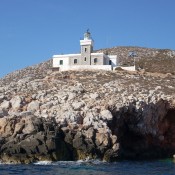In May 2015, the Fitch Laboratory will hold a two-week postgraduate training course providing an introduction to ceramic petrology, building upon the Laboratory’s established reputation on ceramic petrology applications and its extensive reference collections of geological and ceramic thin sections.
The course is open mainly to people with no (or limited) previous experience on petrology although familiarity with archaeological ceramics will be useful. It is an excellent introduction for students already on a research degree in archaeological materials, as well as for postdoctoral researchers and academics interested in being familiar with ceramic petrology applications. Although the focus is primarily with ceramic materials, the skills learnt are applicable to the study of lithics, building materials, pigments and soils.
The course comprises daily lectures and practical classes introducing to optical polarizing light microscopy, the identification of main rock-forming minerals, the classification of rock types, the use and interpretation of geological maps and, subsequently, the analysis of ceramic thin sections to reconstruct provenance and technology. The participants are also introduced to the principles of chemical analysis of ceramics (with a critical review of the most commonly used techniques involving both desktop and portable equipment) and the combined use of chemical and petrographic data. Moreover a demonstration is held on the preparation of thin sections as well as of samples for chemical analysis. Furthermore, a field class to Aegina, including a visit to a traditional pottery workshop, provides practical experience on prospection for pottery raw materials and sampling, as well as contemporary potting practices. Towards the end, each participant has the opportunity to undertake a case study project. In total, the course includes 20 hours of lectures, 28 hours of laboratory practicals, 11 additional contact hours for project accomplishment, plus a day-fieldtrip.
A course manual and a fieldtrip guide are provided for participants covering all aspects of the course and further reading, and a certificate of attendance is issued for each participant upon course completion. The course coordinators and instructors are Dr Evangelia Kiriatzi (Director, Fitch Laboratory) and Dr Ruth Siddall (UCL) with contributions by Dr Noemi Müller (Scientific Research Officer, Fitch Laboratory), Dr John Gait (Williams Fellow in Ceramic Petrology, Fitch Laboratory) and Mr Michalis Sakalis (Technician, Fitch Laboratory).
Dates: 11-22 May 2015.
Course Fee: The course fee includes tuition, accommodation, fieldtrip expenses, all teaching materials, BSA membership for a month including 24 hour access to the superb library and entryto archaeological sites and museums, plus daily coffee and biscuits, packed lunch for the fieldtrip and a welcome and a farewell meal. The fee is £850 (for shared accommodation in double rooms) or ₤1000 (for single accommodation). Self-catering accommodation (including breakfast) will be provided at the BSA Hostel, next to the Fitch Laboratory building.
Travel to and from Athens is the sole responsibility of the course participant.
The course is limited to 12 places. Post-graduate students are recommended to apply to their universities for financial support; limited funding will be available (to cover part of the fees) for students who would otherwise be unable to attend and they should express their interest in such financial support in their application.
Applications forms can be downloaded from the BSA website. Applications should be submitted to the Fitch Laboratory administrator, Ms Zoe Zgouleta via e-mail ([email protected]).
Closing date: 30 January 2015. References must also be received by then through e-mail: it is the applicant’s responsibility to ensure that her/his reference is sent. The successful candidates will hear by the end of February 2015.
For further information see the course page or contact either of the two course coordinators, Dr Evangelia Kiriatzi ([email protected]) or Dr Ruth Siddall ([email protected]).





